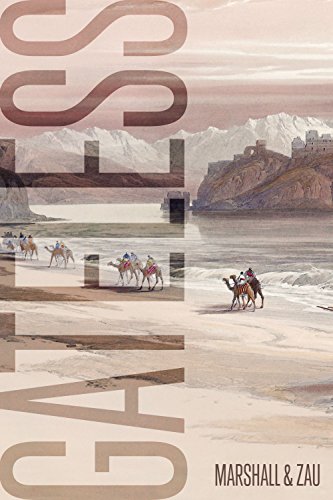
Notes on
Gateless
by Sebastian Marshall & Kai Zau
• 4 min read
Kai and I converged on a universal framework for managing your resources. There are the “Four Currencies” —
Capacity: Your generalized ability to get results and make things happen.
Network: The sum of your friendships, collaborations, and mutual regard with others.
Signal: How you appear to the outside world.
Assets: Your tangible resources (we primarily cover the financial ones).
The four currencies – ‘a universal framework for managing your resources.’
understand our own rational selves trying to control our animal nature.
NYU ethics professor Jonathan Haidt sums it up:
“Modern theories about rational choice and information processing don’t adequately explain weakness of the will. The older metaphors about controlling animals work beautifully. The image that I came up with for myself, as I marveled at my weakness, was that I was a rider on the back of an elephant. I’m holding the reigns in my hands, and by pulling one way or the other I can tell the elephant to turn, to stop, or to go. I can direct things, but only when the elephant doesn’t have desires of his own. When the elephant really wants to do something, I’m no match for him.”
I think this is a good metaphor for understanding the relationships between our rational self and our “animal nature”. If your “animal body” wants to do something, you can ask it to stop — because it is irrational — but it often ignores the request and proceeds.
So, how do you improve your ability to effect results? We’ve divided these “levers” into four categories as a useful starting point —
Biochemistry
Cognition
Action
Environment
There are many ways to improve your capacity. The authors have divided the levers to do so into categories, which are seen in this highlight.
Your ability to consciously shape the effects you’re creating around you — we call this “Capacity.”
It seems like this describes the capacity to get things done or not. If you have high capacity, people won’t worry when asking you to do things for them that it’ll be done. On the other side, if you can’t get things done, you have a low capacity.
A more mature, happy, well-trained, well-fed elephant doing something it’s done before can do a good job. A hungry, angry, stressed, untrained elephant trying to be coaxed into doing something new is a recipe for a disaster.
Continuing the analogy from earlier; if your body is satisfied with what you provide it, it will allow you control.
We should identify thinking and planning as a useful action to take at the start of any serious campaign. This is where you ask questions like,
What am I trying to achieve here?
Why am I trying to achieve it?
How will I know I’m successful?
When do I want this to be complete?
How much time do I estimate this will take?
What’s my budget in time and money for this?
What are the most likely pitfalls?
What key advantages can I build for myself early?
What scares me the most that would make me unlikely to finish?
How good am I at achieving and finishing things like this in the past?
When will I check in and see how it’s going on waypoints?
Who can help me stay on track with this?
What other types of allies, friends, and support do I need?
If I hit major setbacks, what will I do?
Under what circumstances would I quit, abandon, or change this plan?
How much effort and time do I want to make under this plan before reviewing and considering changing it?
Good reflective questions to ask before undertaking any serious project.
Liked these notes? Join the newsletter.
Get notified whenever I post new notes.